Hamid Dalwai, lived the life of true to form social warrior for barely 45 years from 1932 to 1977. Renowned Marathi author Dilip Purushottam Chitre referred to him as the "Angry Young Secularist," while internationally acclaimed historian Ramachandra Guha termed him as "The Last Modernist." Today, September 29, 2024, marks the 92nd birth anniversary of Hameed Bhai. On this occasion, we are publishing the English translation of his Marathi essay Maharashtriya Muslim, - The Maharashtrian Muslim which he wrote 70 years ago at the young age of 22.
The 'Kirloskar' magazine in February (1954) ran an article by Comrade Amar Shaikh, asserting that Marathi is the native language of the Muslims of Maharashtra, and that their culture is Maharashtrian. In these times of growing linguistic and cultural consciousness, the article is important, though not definitive.
"We were born and brought up here. The local language is our native language and this is our home state" - Correct as it may be, this argument has often fallen apart during the Indian freedom struggle.
The distancing of the Maharashtrian Muslim from Marathi and its culture has not arisen out of differences of tradition alone. The linguistic and cultural distancing has arisen out of political segregation and seditionist tendencies.
Politics apart, the Muslim takes a segregationist position on language and culture. If this drifting apart is to end, there is a need to first think of the Muslim educational policy.
By the time we attained Independence, a provision to impart a separate Urdu education to Muslims had been introduced. Every effort had been made to break surviving cultural ties between mainstream society and Muslims. A new Urdu tradition was created. But we, Maharashtrian Muslims, were neither able to fully divorce our Marathi roots, nor were we able to assimilate Urdu completely. As a result, the question of identity confuses Maharashtrian Muslims.
It hasn't entirely dawned upon the Marathi Muslim that his language and culture will actually determine his place in society. Most Muslims are torn between the need to use Marathi, that is inevitably woven into their lives, and their inexplicable and newfound love of Urdu.
After Independence, efforts were indeed made to remove the distances and integrate Muslims better with Maharashtrian mainstream society - at least at the level of language. However, years of indoctrination had already distanced the majority Maharashtrian Muslim from Marathi language and culture. Any efforts to integrate naturally met with opposition. It may not be impertinent to discuss the details of Ratnagiri district in this context.
In keeping with the times, the Ratnagiri district school board passed a proposal to impart education to Muslim chidren in Marathi medium. Muslim members of the board vehemently opposed the proposal. The newly-formed Urdu Vikas Mandal (Urdu development circle) in Ratnagiri city lodged a protest against the proposal with state education minister Balasaheb Kher. As part of its policy to curtail powers of the district school boards, the state government took charge of primary education, and the proposal to impart education to Muslim children in Marathi, was packed away.
In keeping with the original school board proposal, Appasaheb Patwardhan had proposed a scheme for Muslim children: The medium of instruction for Muslim children would be Marathi, but they could take up Urdu as a second language. The school board also approved a proposal to this effect. People like me, who believed Marathi should be the medium of instruction, had hoped that the state government policy would also echo the school board proposal.
However, the state government endorsed the earlier policy of segregation. Whatsmore, they added to it! Previously, Muslim students who chose Marathi medium, had the option to pick Urdu as an elective subject. That option was withdrawn. Instead, Marathi was introduced as an elective subject for Urdu medium students. As a result, Muslim parents completely stopped sending their wards to Marathi medium schools, for the fear of completely losing touch with Urdu.
There was a flurry of applications to open new Urdu schools, based on the (flimsy) criterion of letters from 40 parents per school. Existing govt. schools were quickly divided to meet this demand, and all Muslim students began undergoing an Urdu education.
On what principle or law were requests from 40 parents considered an adequate criterion to grant a new Urdu school? Does the government imply that Marathi is NOT the mother tongue of Muslims of Maharashtra, especially in Ratnagiri district?
It's unfortunate that the secular government needs to be reminded that Muslims may be a religious minority but they are not a linguistic minority; It needs to be explained that people of the same language may follow different religions but people of the same religion may speak different languages. It needs no explanation though that Muslims practice a different religion, but speak the same language (Marathi). Even if we assume that some Muslim families historically migrated straight from Arabia, their children still need to be educated in the local language; That's because now several generations of theirs have now blended with this soil.
The language of our religious discourse in Islam is Arabic, nor Urdu. It's true that some of our religious books are available in Urdu but how can that be grounds for demanding Urdu as a medium of instruction? Most Hindu scriptures are in Sanskrit; Those of naturalized Jews in Maharashtra are in Hebrew. Does the government offer to impart education to those communities in those languages? Then why should a secular government bother with imparting an Urdu education to Muslim students? If the language that their parents, and grandparents spoke is a criterion to determine the mother tongue, then it would undoubtedly be Marathi. In fact, the parents of the current generation have negligible knowledge of Urdu. They still use the Modi script for domestic, trade and formal communication; This notwithstanding, the last census registered Urdu as their mother tongue, based on verbal answers, and on the basis that their children now read in an Urdu school. The situation is pathetic in my own household. My mother tongue is registered as Marathi, and my younger brother's as Urdu (as he reads in an Urdu school).
Urdu medium students are unable to pursue a secondary education in Marathi. They are often unable to attend Urdu high schools that are available only in far flung district or taluka towns. As a result, they often bid goodbye to education and the Muslim society gets relegated further into the darkness of ignorance.
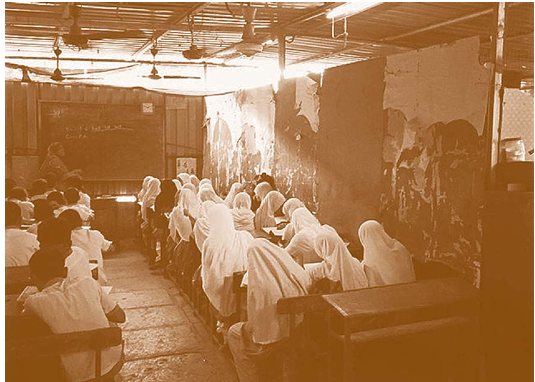 (Udru Mediaum Students: What's in store for Them?)
(Udru Mediaum Students: What's in store for Them?)
It is hard to believe that the stalwarts of the Mumbai government do not realise this. However this government policy is purely opportunistic, and based on political cunning. It aims to deceive Muslims into believing that this government alone is pro-Muslim and that its policies are in the interest of Muslims: This will have two effects - one short term and one permanent. Complete Muslim support and electoral vote for the ruling party in the short term, and alienation of the Muslim population from the local language and culture, in the long term.
This is exactly what the bigoted factions among Muslims want. Such attempts to pander to bigots, that too post-Independence, leave people like me in pain.
I once wrote an article in daily Navshakti, roughly titled ' Stop the destruction of Muslim school education; Give them a Marathi education'. A communal paper like Inquilab branded me a traitor. Balwant, a pro-Congress publication labeled me communal. How do I reconcile the two? What policy does this alliance between the Inquilab and Balwant indicate? It's time for the Muslims to calmly think about it. They must realise if this (Urdu education) policy does them more harm than good.
The logic behind the ruling party policy is clear. That is, to exploit the communal sentiments among Muslims. It's a nation-wide government strategy. Why else would a separate Muslim referendum be held to decide the fate of Bellary* (footnote needed). It is due to this strategy that Muslims in Andhra Pradesh too have raised a demand for Urdu language.
The reason to describe this in detail here is to show how government policy is the biggest obstacle to the path of Muslim youth who would like to see their community integrate with local language and culture.
The government must change this policy immediately. If they want to have Muslims feel any affinity for the local language and culture, the medium of instruction at school has to be Marathi. If a distorted history of Maharashtra is taught to Muslim children, will they ever feel any love for the state's heritage? For this purpose, the government must declare compulsory Marathi education in the state, and offer Urdu as a second language in the curriculum.
There is a new appreciation of education in the Indian society. Medium of education has become an important point of discussion among scholars. The mainstream soceity should also now address this subject and bring pressure on the government to change its policy.
Although the government has consciously adopted this wrong policy, its the right time for us Muslims to introspect. We cannot blame it on the government policy and escape our responsibility or hide our mistakes. Despite many years of adverse indoctrination, have we been able to divorce ourselves completely from our Marathi, it's culture and traditions? Are we really at home with Urdu? We must at least quietly think about the standing of the newly Urdu-centric generation of Muslim youths in tomorrow's Maharashtra.
Today we speak a pidgin language due to insufficient knowledge of Urdu and due to the deeply ingrained influence of everyday Marathi: "Muze janaich chahiye", "Wo Ahmad Khan marya", and "Tum idar kayku aya". Clearly Marathi, including the Modi script, is woven intothe lives of Konkan Muslims. Konkani is spoken in the household; It's not even remotely connected to Urdu.
If you look at language, attire, customs, traditions, and conventions, you'll realize that Muslims are really not that different (from non-Muslims). Songs sung at Muslim weddings in the Konkan, are addressed to both pirs (Islamic, mostly sufi saints) and Parshuram (presiding deity of the Konkan, as per Hindu mythology).
There is nothing odd or bad in the fact that Muslim wedding customs in the Konkan, reflect customs of the Hindu majority.
Even the attire is not too different; Save the occasional Fez cap, the Muslims of Konkan commonly wear the Maharashtrian style dhoti, angarkha (kurta), and turban (feta). Some Muslim women wear the mangal sutra (pendant) and kunku (red dot) that are the hallmark of married women in Hindu society.
The custom of offering a coconut to women at weddings and maternity ceremonies are not Islamic (and yet observed). The presiding village deity and the local pir are accorded equal respect. This tradition continues despite many attempts to destroy it.
At the peak of the Muslim League (secessionist) movement, some Muslim youths tried to prevent coconut offerings from being sent to the presiding deity's Hindu temple. But so ingrained was the tradition in society that I know of Muslim women who, unknown to their menfolk, arranged to send the offerings to the temple!
There has been no cow slaughter in my town in 50 years (in deference to Hindu sentiments). Most Muslim men eat beef, but womenfolk refuse to cook it at home. Muslim traders (just like Hindu ones) start their new year book-keeping in Diwali. They rarely do so in Moharram, per Islamic tradition.
These are all purely Maharashtrian influences. Some of these may be based, as they are indeed, in blind faith. But they can only be countered by rationalism. Years and years of indoctrination can only be removed by rationalism. But when that happens, it is not only the custom of sending coconut offerings to the deity that will stop, it will lead to a scientific temper of question everything. If we are unable toremove old customs and traditions; how long are we (Muslims) going to keep up this pretence of being different? Instead of trying to develop a different tradition, it may be better to preserve traditions that bind us to each other.
To do this, we must first change our educational policy. The secessionist indoctrination has given rise to a section of Muslim leadership that is brought up on a dislike for the Marathi language and mainstream society. As the survival of such leadership depends on keeping the Muslims ill-informed and uneducated, these leaders have always tried to mislead the entire Muslim community in the wrong direction. Moreover, if any Muslim youths make attempts to integrate with the mainstream society, Muslim leadership strives to inflame the popular Muslim sentimnet, against them.
Nevertheless Muslim youths must overlook such bitterness, and without depending on the government or mainstream, try to explain the long term consequences of the segregationist policy to the Muslim society. If we do this ourselves, the mainstream will certain help us. The mainstream is also keen to assimilate the Muslim populace. They are not only ready to welcome us to the mainstream, they are eager!
Today, the average Muslim youth is in a dilemma. He feels uncertain of his position in tomorrow's Maharashtrian society. If we want to break free from segregation that arises out of indifference, then we need to first reunite with the Marathi language, culture, history, and tradition. Let us inculcate our (real) mother tongue. Nobody is stopping us from learning Urdu. I would argue, why just Urdu, Muslim boys and girls must master other Indian regional languages too.
We also need to need to give thought to how much importance we really want to give Urdu. Urdu is not the regional language of a single state in India. Lucknow is considered the Urdu capital of India, but even there, it is not the regional language. It's as if the existence of Urdu is at stake. To survive in India, Urdu must start using the Devnagari script. If that happens, people will automatically pick up Urdu while they learn Hindi. If the status quo continues, Urdu by itself would not be able to bring livelihood to Muslim youth. In such circumstances, if Muslim youth do not qualify for jobs or higher education for want of requisite proficiency in the regional language, will it be correct to blame the government or the mainstream?
If we raise the question of religious education (of Muslims), then that too is a fallacious. Bengali Muslims receive religious instruction in Bengali. Bohri and Gujarati Muslims read the Koran and Tarteeb in Gujarati. Then why should the Maharashtrian Muslim not be able to read them in Marathi? The fact that Sayyad Ameen wrote 'Islam and Sanskriti' in Marathi actually helped Muslims who could not read Arabic. We must explain this to the Muslim common man.
If we wish to integrate with mainstream society, then we must shed the current dilemma. We must strengthen our cultural ties with the majority population.We must gain our recognition by upholding local traditions. We must be able to sing the verses of Sant Tukoba (iconic poet-saint of Maharashtra), and appreciate the teachings of the Swami Ramdas' "Dasbodh". The ballads by Marathi bards (shahirs) must give us goosebumps. This rich literary tradition does not belong to Hindu Maharashtrians alone, it equally belongs to us (Muslims). These are the priceless carvings of the Marathi intellect.
The Maharashtrian Muslim is poised to read the signs of changing times, and explore a path of integration with the Maharashtrian mainstream. Old indoctrinations baffle him. We must come forward to support Muslim youths at such times. I have no doubt in my mind that the Maharashtrian Muslim youth will embrace this new viewpoint!
- Hamid Dalwai
(Printed in the Marathi weekly, 'Mouj', in the edition dated 11 April 1954. Hamid bhai was 22, when he wrote th is piece.
Reprinted in Sadhana Weekly's 68th Anniversary Special Edition dedicated to Hamid Dalwai, dated 15th August 2015.)
Translated by Sanjay Pendse
Read the Original Article in Marathi here: महाराष्ट्रीय मुसलमान
Tags: hamid dalwai indian muslim integration of muslims maharashtrian muslim muslim satyashodhak secular muslim angry young secularist sadhana digital Load More Tags

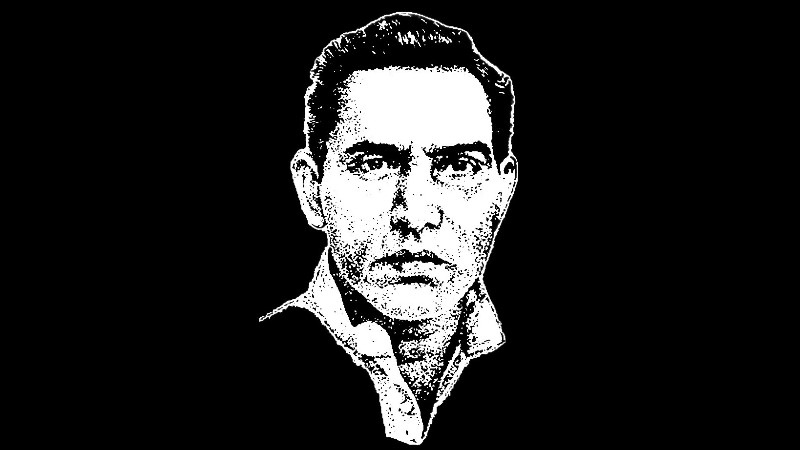

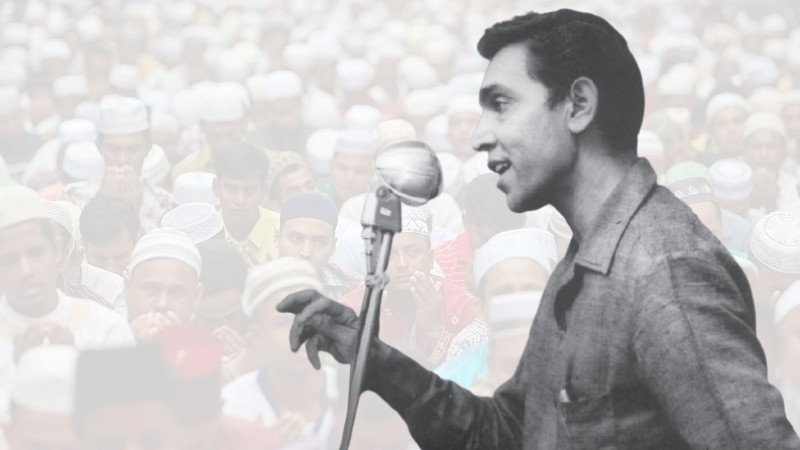
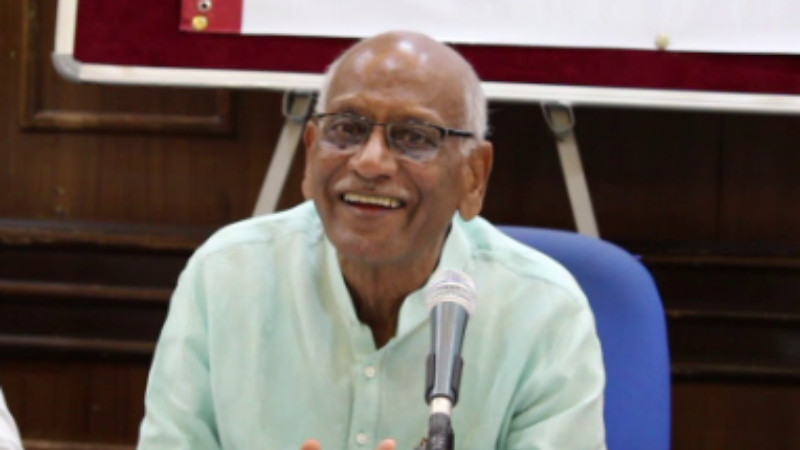

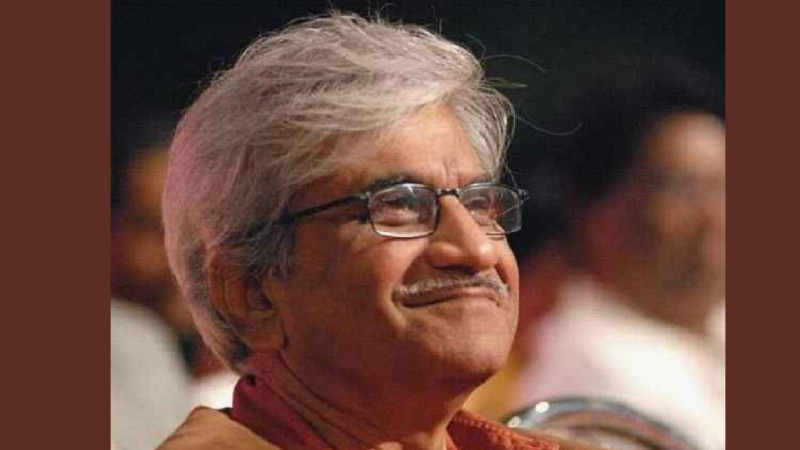
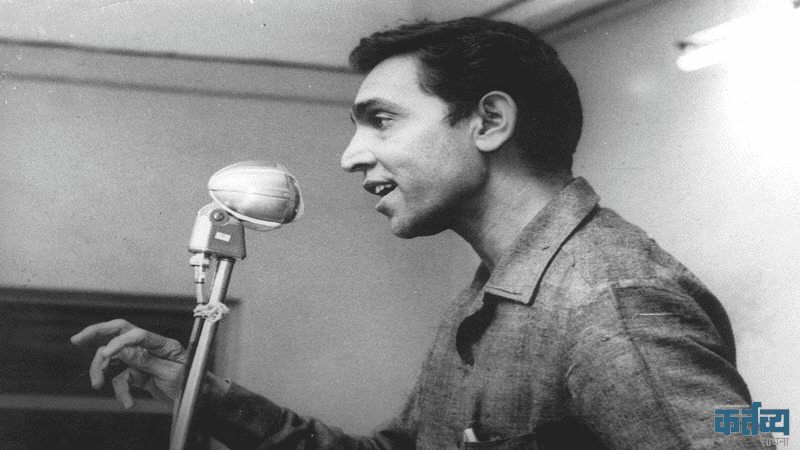
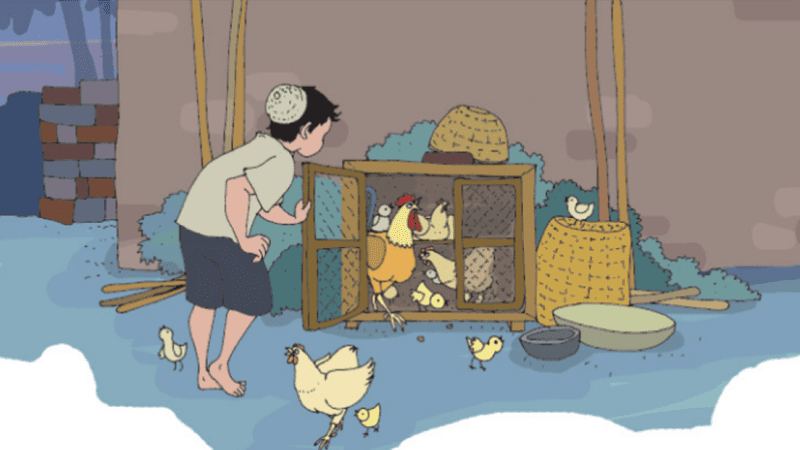

























Add Comment